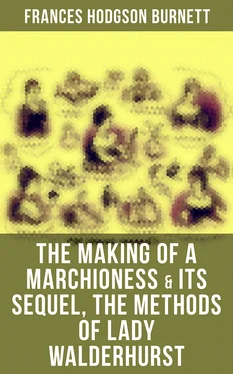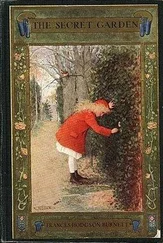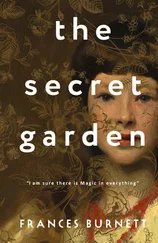“Psyche!” she heard him say in his odd voice, which seemed merely to make a statement without committing him to an opinion—“Psyche!”
He did not say it to her or to any one else. It was simply a kind of exclamation,—appreciative and perceptive without being enthusiastic,—and it was curious. He talked to Agatha nearly all the evening.
Emily came to Lady Agatha before she retired, looking even a little flushed.
“What are you going to wear at the treat tomorrow?” she asked.
“A white muslin, with entre-deux of lace, and the gauze garden-hat, and a white parasol and shoes.”
Lady Agatha looked a little nervous; her pink fluttered in her cheek.
“And tomorrow night?” said Emily.
“I have a very pale blue. Won’t you sit down, dear Miss Fox-Seton?”
“We must both go to bed and sleep. You must not get tired.”
But she sat down for a few minutes, because she saw the girl’s eyes asking her to do it.
The afternoon post had brought a more than usually depressing letter from Curzon Street. Lady Claraway was at her motherly wits’ ends, and was really quite touching in her distraction. A dressmaker was entering a suit. The thing would get into the papers, of course.
“Unless something happens, something to save us by staving off things, we shall have to go to Castle Clare at once. It will be all over. No girl could be presented with such a thing in the air. They don’t like it.”
“They,” of course, meant persons whose opinions made London’s society’s law.
“To go to Castle Clare,” faltered Agatha, “will be like being sentenced to starve to death. Alix and Hilda and Millicent and Eve and I will be starved, quite slowly, for the want of the things that make girls’ lives bearable when they have been born in a certain class. And even if the most splendid thing happened in three or four years, it would be too late for us four—almost too late for Eve. If you are out of London, of course you are forgotten. People can’t help forgetting. Why shouldn’t they, when there are such crowds of new girls every year?”
Emily Fox-Seton was sweet. She was quite sure that they would not be obliged to go to Castle Clare. Without being indelicate, she was really able to bring hope to the fore. She said a good deal of the black gauze dress and the lovely effect of the silver butterflies.
“I suppose it was the butterflies which made Lord Walderhurst say ‘Psyche! Psyche!’ when he first saw you,” she added, en passant .
“Did he say that?” And immediately Lady Agatha looked as if she had not intended to say the words.
“Yes,” answered Emily, hurrying on with a casual air which had a good deal of tact in it. “And black makes you so wonderfully fair and aërial. You scarcely look quite real in it; you might float away. But you must go to sleep now.”
Lady Agatha went with her to the door of the room to bid her goodnight. Her eyes looked like those of a child who might presently cry a little. “Oh, Miss Fox-Seton,” she said, in a very young voice, “you are so kind!”
Table of Contents
The parts of the park nearest to the house already presented a busy aspect when Miss Fox-Seton passed through the gardens the following morning. Tables were being put up, and baskets of bread and cake and groceries were being carried into the tent where the tea was to be prepared. The workers looked interested and good-humoured; the men touched their hats as Emily appeared, and the women courtesied smilingly. They had all discovered that she was amiable and to be relied on in her capacity of her ladyship’s representative.
“She’s a worker, that Miss Fox-Seton,” one said to the other. “I never seen one that was a lady fall to as she does. Ladies, even when they means well, has a way of standing about and telling you to do things without seeming to know quite how they ought to be done. She’s coming to help with the bread-and-butter-cutting herself this morning, and she put up all them packages of sweets yesterday with her own hands. She did ‘em up in different-coloured papers, and tied ‘em with bits of ribbon, because she said she knowed children was prouder of coloured things than plain—they was like that. And so they are: a bit of red or blue goes a long way with a child.”
Emily cut bread-and-butter and cake, and placed seats and arranged toys on tables all the morning. The day was hot, though beautiful, and she was so busy that she had scarcely time for her breakfast. The household party was in the gayest spirits. Lady Maria was in her most amusing mood. She had planned a drive to some interesting ruins for the afternoon of the next day, and a dinner-party for the evening. Her favourite neighbours had just returned to their country-seat five miles away, and they were coming to the dinner, to her great satisfaction. Most of her neighbours bored her, and she took them in doses at her dinners, as she would have taken medicine. But the Lockyers were young and good-looking and clever, and she was always glad when they came to Loche during her stay at Mallowe.
“There is not a frump or a bore among them,” she said. “In the country people are usually frumps when they are not bores, and bores when they are not frumps, and I am in danger of becoming both myself. Six weeks of unalloyed dinner-parties, composed of certain people I know, would make me begin to wear moreen petticoats and talk about the deplorable condition of London society.”
She led all her flock out on to the lawn under the ilex-trees after breakfast.
“Let us go and encourage industry,” she said. “We will watch Emily Fox-Seton working. She is an example.”
Curiously enough, this was Miss Cora Brooke’s day. She found herself actually walking across the lawn with Lord Walderhurst by her side. She did not know how it happened, but it seemed to occur accidentally.
“We never talk to each other,” he said.
“Well,” answered Cora, “we have talked to other people a great deal—at least I have.”
“Yes, you have talked a good deal,” said the marquis.
“Does that mean I have talked too much?”
He surveyed her prettiness through his glass. Perhaps the holiday stir in the air gave him a festive moment.
“It means that you haven’t talked enough to me. You have devoted yourself too much to the laying low of young Heriot.”
She laughed a trifle saucily.
“You are a very independent young lady,” remarked Walderhurst, with a lighter manner than usual. “You ought to say something deprecatory or—a little coy, perhaps.”
“I shan’t,” said Cora, composedly.
“Shan’t or won’t?” he inquired. “They are both bad words for little girls—or young ladies—to use to their elders.”
“Both,” said Miss Cora Brooke, with a slightly pleased flush. “Let us go over to the tents and see what poor Emily Fox-Seton is doing.”
“Poor Emily Fox-Seton,” said the marquis, noncommittally.
They went, but they did not stay long. The treat was taking form. Emily Fox-Seton was hot and deeply engaged. People were coming to her for orders. She had a thousand things to do and to superintend the doing of. The prizes for the races and the presents for the children must be arranged in order: things for boys and things for girls, presents for little children and presents for big ones. Nobody must be missed, and no one must be given the wrong thing.
“It would be dreadful, you know,” Emily said to the two when they came into her tent and began to ask questions, “if a big boy should get a small wooden horse, or a little baby should be given a cricket bat and ball. Then it would be so disappointing if a tiny girl got a workbox and a big one got a doll. One has to get things in order. They look forward to this so, and it’s heartbreaking to a child to be disappointed, isn’t it?”
Читать дальше












